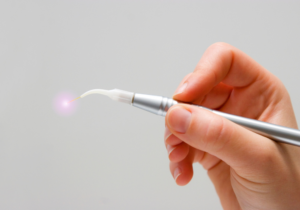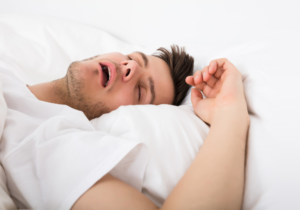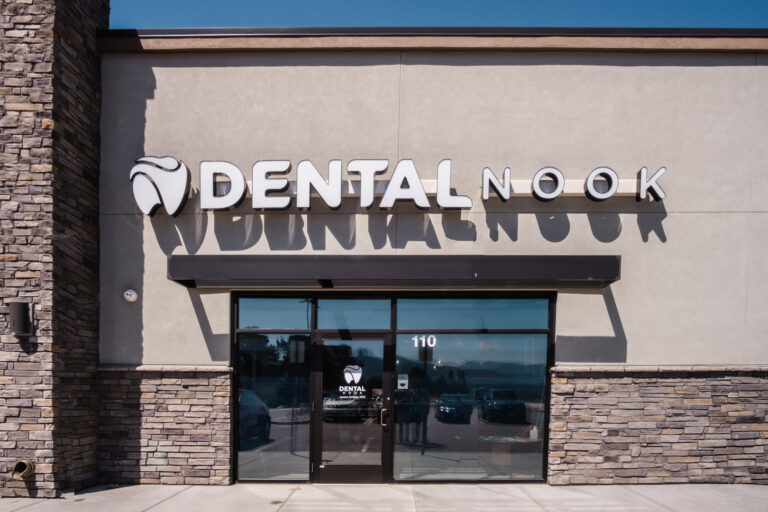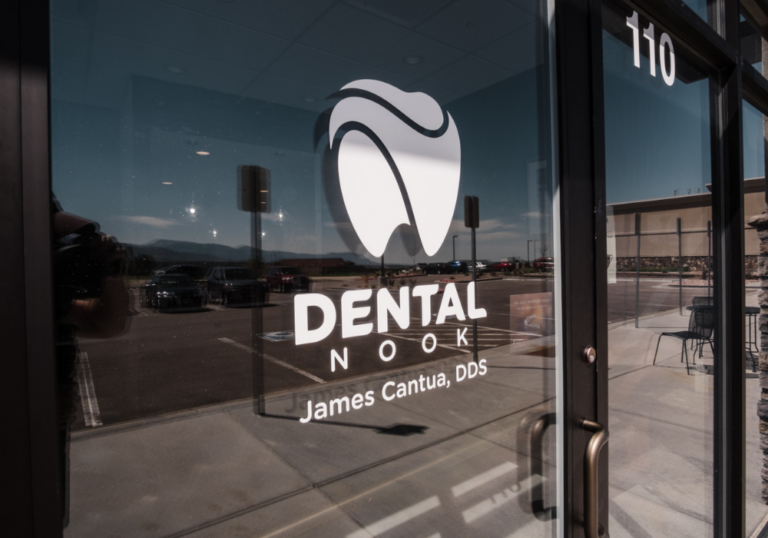Sleep Apnea & Snoring
Snoring and sleep apnea are conditions to take very seriously because they can lead to other major health consequences. We provide effective treatment for many cases of sleep apnea and severe snoring to help you improve your health.
Sleep Apnea
Sleep apnea causes you to experience frequent and recurring shortness of breath while sleeping, which is why people with sleep apnea often snore. It is typically caused by the airways becoming so relaxed while sleeping that the passageway constricts on itself. Without enough air, oxygen becomes limited to the brain and it causes your body to wake up or never reach full sleep mode, also known as REM sleep.
The muscles at the back of the throat play a crucial role in supporting various structures in your mouth that allow your airways to be fully open when you sleep. Muscles such as the soft palate, the uvula, the tonsils, the side walls of the throat, and the tongue. This is why dentistry can be instrumental in addressing or reducing sleep apnea problems because of its impact on these structures.
What are the signs of Sleep Apnea?
The eight items listed below indicate that sleep apnea may be disrupting your sleep. Not everyone will experience all of these, but the symptoms listed are prevalent ailments in people with sleep apnea.
- Loud snoring that comes and goes
- Episodes of breathing cessation during sleep
- Excessive tiredness during the day due to lack of good sleep during the night
- Morning headaches
- Frequent dry mouth or sore throat in the morning
- Irritability and mood changes or difficulty concentrating due to lack of sleep
- Frequent urination at night
- Restless sleep with constant tossing and turning

Snoring
Snoring is the raspy or loud sound produced when air rushes through relaxed throat tissues, causing them to vibrate while you breathe. Almost everyone snores occasionally, but for some, it can be a persistent issue. Occasionally, it may also signal a significant health condition.
Snoring is frequently related to obstructive sleep apnoea, a sleep disease (OSA). If snoring is accompanied by any of the following symptoms, it may be necessary to contact our office for further examination:
- Observed sleep breathing pauses
- Excessive daytime sleepiness
- Having trouble concentrating
- Morning headaches
- Sore throat
- Restless sleep
- Night-time gasping or choking
- Elevated blood pressure
- Chest discomfort at night

-
What is sleep apnea?
Sleep apnea is a disorder that causes pauses in breathing during sleep. A restrictive airway typically causes the pauses due to other issues in the mouth or throat area. Occasionally, sleep apnea is caused by different things, but a relaxed airway is the most common. In a healthy person, airways stay fully open when laying down and when the body is relaxed, such as when sleeping. In someone with sleep apnea, the airways close or become restricted during sleep, causing a lack of oxygen to the brain. There are three types of sleep apnea:
Obstructive Sleep Apnea: This is the most common type of sleep apnea. This is caused when muscles in the throat relax too much and cause the throat's soft tissues to collapse or block the airway.
Central Sleep Apnea occurs when the brain fails to signal properly to the muscles that control breathing during sleep. This type of sleep apnea is much less common and often occurs with other medical conditions such as heart failure or a stroke.
Complex or Mixed Sleep Apnea occurs due to certain airway treatments that cause pressure on the
-
How is sleep apnea diagnosed?
Sleep apnea is usually diagnosed through a sleeping test. A test can be done at home in the form of a take-home sleep test or it can be done in a monitored location by a sleep specialist. The sleep test consists of wearing a portable monitoring device while you sleep. This device tracks how many times you stop breathing and how many times you wake up during the night. Once these results are in a sleep specialist or your dentist will provide a treatment plan. Everyones situation and needs are different so your plan will be custom to what you need to start recovery.
If you are looking for a home sleep specialist, start with your dentist as they often have someone they will refer you to for further treatment or may provide a home sleep apnea test to you via the dentist office.
More Questions?
If you have more questions about sleep apnea or snoring, please contact our office and we will be happy to discuss further.


